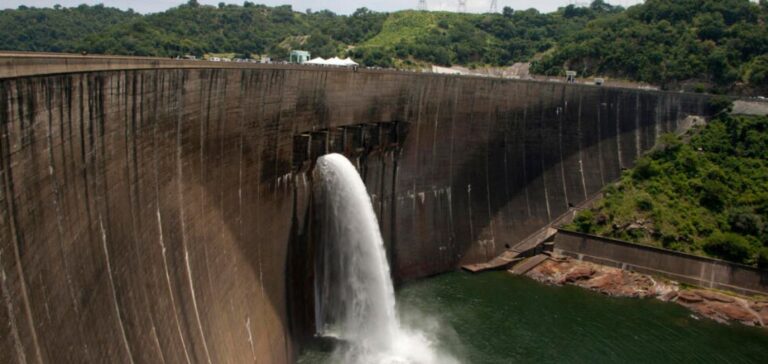Zambia, 85% dependent on hydroelectricity, is being forced to diversify its energy sources due to an unprecedented drought caused by El Niño. This situation has led the government to approve the construction of a new coal-fired power plant to offset energy deficits.
An Acute Energy Problem
For several decades, Zambia has relied mainly on its hydroelectric dams to supply electricity to its citizens and industry. However, low water levels caused by repeated droughts have put this energy model to the test. The current drought, considered the most severe in forty years, has forced the country to introduce daily power cuts lasting a minimum of 12 hours.
In response to this crisis, the Energy Regulation Board recently issued a building permit for a new 300-megawatt coal-fired power plant in the south of the country. The project is being carried out by Maamba Collieries Ltd, a company majority-owned by Nava Ltd, based in Hyderabad, India.
A Contested but Necessary Choice
The decision to use coal, although controversial, is justified by the urgency of the situation. The project aims to double the production capacity of the existing site, offering an alternative to the failing hydroelectric infrastructure. However, this energy option raises environmental issues, not least because of the greenhouse gas emissions associated with coal combustion.
Financing new coal-fired power plants is becoming increasingly difficult, as many banks, including Chinese state-owned lenders, have stopped supporting such projects because of their environmental impact. Despite this, Zambia signed an implementation agreement with Maamba Collieries at the end of June, and the project is nearing financial close.
Crucial Financial Support
The financial participation of the Zambian National Pension Fund is currently being evaluated to finance part of the $400 million required to complete the project. This initiative reflects the Zambian government’s determination to resolve the current energy crisis despite the financial and environmental challenges.
According to Energy Minister Peter Kapala, the collaboration with Maamba Collieries could provide a short-term solution to energy shortages, ensuring the country’s economic and industrial continuity.
Economic and environmental implications
The economic repercussions of this drought are considerable, forcing the government to revise its growth forecasts for 2024 downwards to 2.3%. The installation of this new coal-fired power station may stabilize the situation in the short term, but it does not solve the underlying problems linked to over-reliance on fossil fuels.
Experts stress the importance of further diversifying the country’s energy sources, integrating more sustainable solutions such as solar and wind power, to avoid similar energy crises in the future.
The construction of this new coal-fired power plant in Zambia illustrates the complex challenges facing developing countries in the face of climate crises. While necessary in the short term to meet urgent energy needs, this initiative highlights the urgency of transitioning to more sustainable, environmentally-friendly energy sources. Zambia will need to consider long-term strategies to ensure stable and environmentally responsible energy production.






















